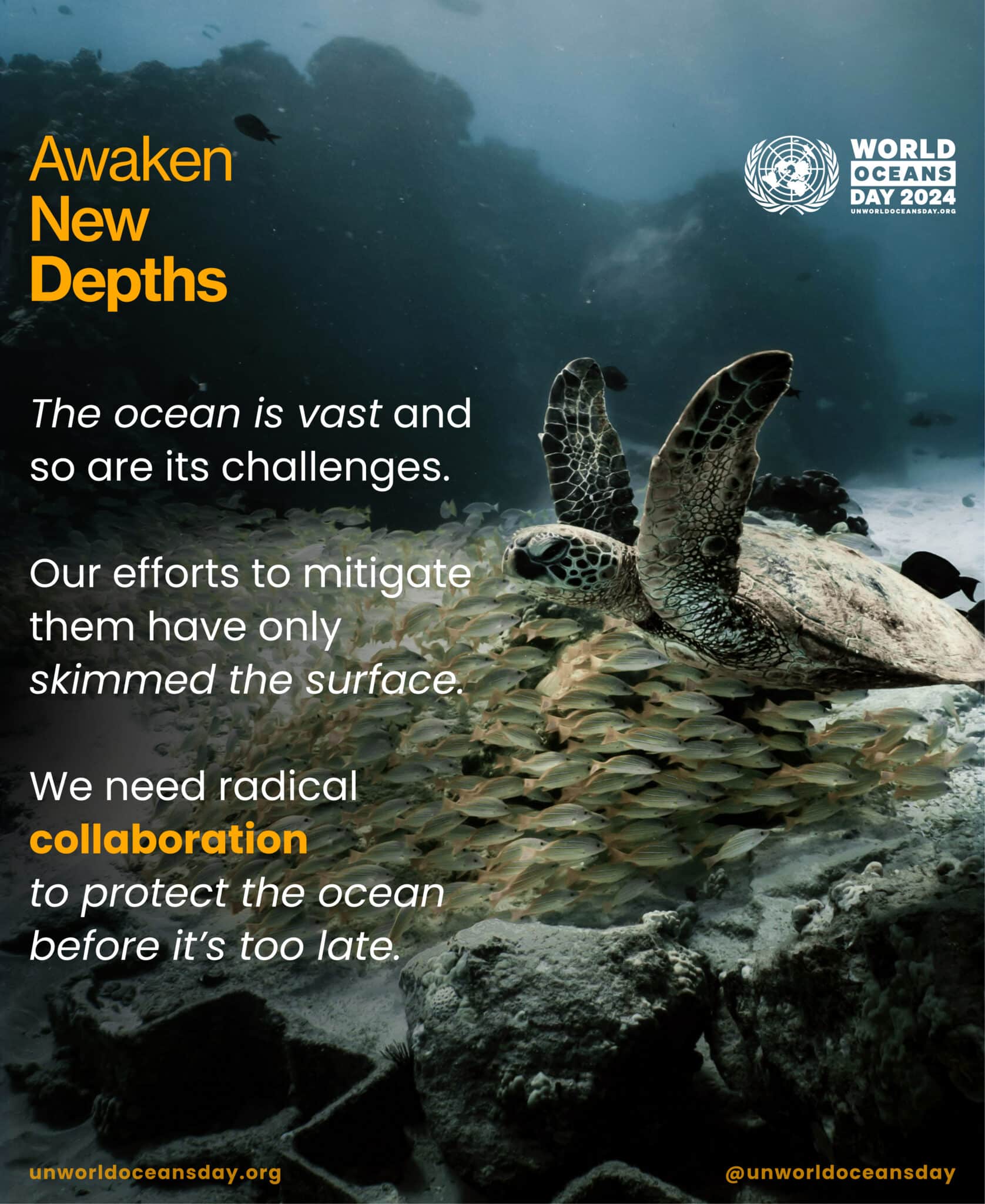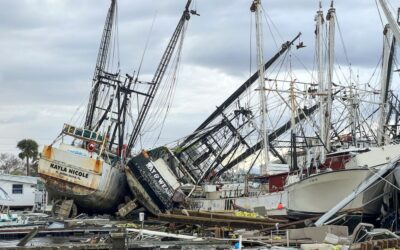This post was originally published on Eco Watch
By Olivia Rosane and Cristen Hemingway Jaynes
Humans have explored less than 10 percent of the ocean’s depths, yet our actions influence it in profound and damaging ways: Our plastics have polluted its waters from coastal sea spray to the Mariana Trench; our burning of fossil fuels has ignited marine heat waves and bleached coral reefs.
To call our attention to all that the ocean does for us and all that we must do to protect it, the United Nations is hosting a special program for World Oceans Day (UN WOD) on Friday June 7, 2024.
“As humans, we depend on the ocean for survival,” said actor Michael B. Jordan in a video announcing this year’s event. “But compared to what it gives us, we invest little in return.”
Since it began in 2008, UN WOD has been celebrating the magnificence and importance of the ocean while also raising awareness of the threats it faces. While World Oceans Day officially falls on June 8, the main program has been moved up a day this year as World Oceans Day falls on a Saturday.
For the second year in a row, the UN’s Division for Ocean Affairs and the Law of the Sea of the Office of Legal Affairs, in partnership with Oceanic Global, will host a hybrid program. A slate of policymakers, experts, artists and advocates will deliver in-person presentations at the UN headquarters in New York that will also be livestreamed to ocean lovers around the world. You can register for the virtual event here.
The theme for this year’s program is “Awaken New Depths.”
“For years experts have warned us, if there is no ocean, there is no life. Instead of listening, we have continued to make shallow and short-sighted decisions that further its decline without understanding truly what’s at stake,” Jordan said. “We don’t have time for ‘out of sight out of mind.’ If the world is numb to numbers, motivating momentum will require opening minds, igniting senses and inspiring possibilities. To protect our planet’s beating heart, we need to awaken new depths of our own.”
To help awaken those depths, the UN has turned to the wisdom and imagination of an inspiring roster of speakers.
UN WOD will bring together UN delegates, high-level officials and global thought leaders at New York’s UN headquarters. It will also feature panels, presentations, keynote speeches and performances from President of the UN General Assembly H.E. Mr. Dennis Francis, oceanographer Sylvia Earle, actress Bailey Bass, climate scientist Johan Rockström, activist Xiye Bastida and the Late Show with Stephen Colbert bandleader and recording artist Louis Cato, among many others.
“It’s the first time that we know what we know and it’s maybe the last best chance we’ll ever have to make peace with nature,” Earle said on the event website.
The day’s programming will include a special emphasis on artistic expressions, including musical performances by Cato and others, an “immersive sound experience” from Aquostics Chair David Erasmus, poetry from the 2024 Call for Poetry curated by Karan Rathod and Alfaaz Collective, and the announcement of the winners of the 11th annual Photo Competition for World Oceans Day.
“We’ll expand our perspectives and appreciation for our planet, build new foundations for our relationship with the ocean and awaken new depths of understanding, compassion, collaboration and commitment to protect our ocean and all it sustains,” Jordan said on Friday’s event. “Because we live on a blue planet. It’s time we act like it.”
The UN WOD program will be publically accessible via live stream on the event website from 10 a.m. to 1:30 p.m. EDT and reshared on social media. Visit @unworldoceansday on Instagram for more. You can also see the schedule of events here.
EcoWatch is proud to act as UN WOD’s media partner.
“Humanity can count on the ocean, but can the ocean count on us?” UN Secretary-General António Guterres asked on the event website. “Today and every day, let’s put the ocean first.”
Olivia is a freelance writer and reporter with a decade’s worth of experience. She has been contributing to EcoWatch daily since 2018 and has also covered environmental themes for Treehugger, The Trouble, YES! Magazine and Real Life. Her Real Life essay “Breaking the Waves” — about the eerily neat aesthetics of climate change projection graphics — was chosen to appear in the published anthology What Future 2018 from Unnamed Press.
Cristen is a writer of fiction and nonfiction. She holds a JD and an Ocean & Coastal Law Certificate from University of Oregon School of Law and an MA in Creative Writing from Birkbeck, University of London. She is the author of the short story collection The Smallest of Entryways, as well as the travel biography, Ernest’s Way: An International Journey Through Hemingway’s Life.
The post ‘Awaken New Depths’ and Celebrate UN World Oceans Day 2024 appeared first on EcoWatch.





0 Comments